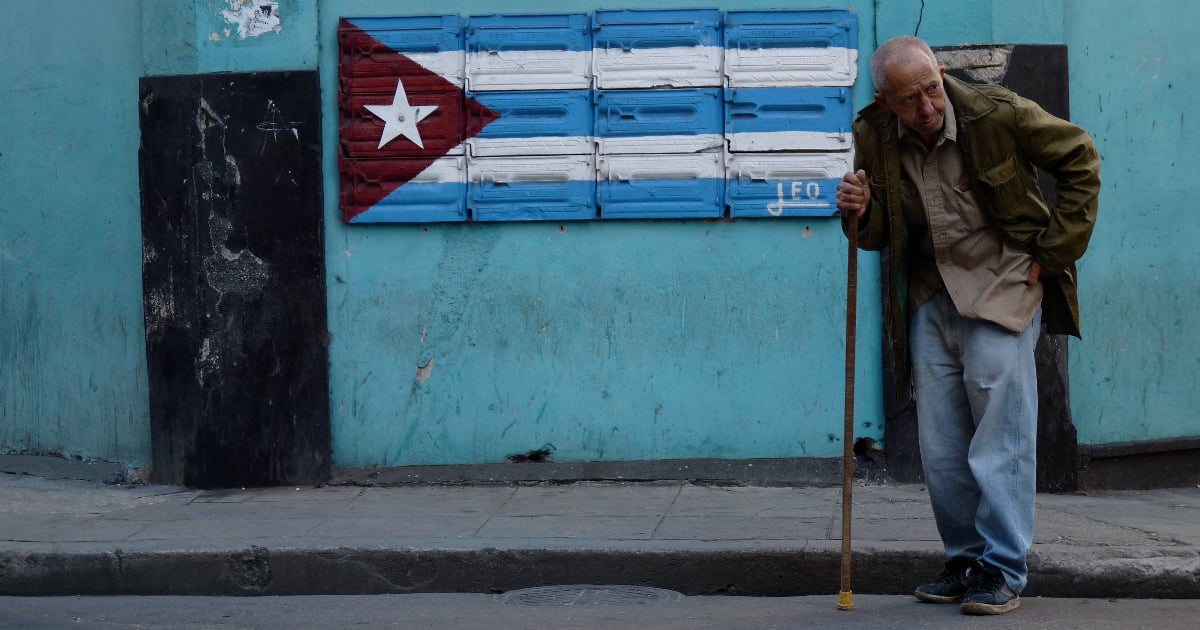The Cuban government's recent announcement of a "Combatant People's March" has incited a wave of anger and criticism across social media platforms. Citizens, exasperated by the ongoing economic turmoil characterized by power outages, food shortages, and widespread hardship, are questioning the purpose of such a mobilization.
Comments on social media, in response to a report by CiberCuba published this past Saturday, reveal a public sentiment starkly different from the alleged widespread support touted by Miguel Díaz-Canel's administration, bolstered by surveys from the Communist Party of Cuba's research center.
Widespread Resistance and Rejection
"This isn't a march; it's a referendum. It's the clearest way to tell them we don't want them," commented one user, suggesting that the march be turned into a demonstration of disapproval for Díaz-Canel's administration by not attending the propaganda event.
"Does that produce food or electricity?" asked another Cuban, echoing the sentiments of thousands who challenge the value of these governmental maneuvers, perceived as distractions to keep the populace in a constant state of mobilization that serves the interests and ambitions of those in power.
Many pointed out that participation is often coerced through job-related threats. "Workplaces force employees; if they don't go, there are consequences," an internet user recalled. "They compel us to march on empty stomachs just to maintain a façade of support," another remarked.
One comment effectively illustrated the absurdity of the situation: "They march and, upon returning home, find no electricity or food to cook." A user reminisced about the past when "food stalls were set up at marches, but now not even that."
"None of those attending will have had breakfast; their skin will be dusty, and their faces gaunt," another Cuban emphasized, highlighting the official hypocrisy. "The people's march... with hunger"; "Let the well-fed march," others added.
Noteworthy Remarks
"It's all strategy. Later, photos with thousands of people are released, making the world believe the people support the government."
"They go hungry and hopeless. Only those forced attend such a march."
"A march achieves more than keeping these people in power indefinitely."
"Everyone participating in such a charade deserves their fate."
"We all know this is for public opinion, a façade."
"These people act as if under the influence of something powerful: an obsession with power and money."
"Free elections for the Cuban people, down with the dictatorship."
"They've spent decades with the same rhetoric and haven't learned."
"We've wasted resources and time on marches, neglecting food production while the country remains in ruins."
"That day should be a real protest, not a government showcase."
"I'd rather be fired a thousand times than attend that march."
"If everyone marches in silence, as if at a funeral, it would send a clear message to the government."
"These calls only measure the people's fear and submission."
"We'll faint marching while they have full bellies."
"With all their privileges, is there no psychiatrist attending to them?"
"These people act as if under the influence of something potent."
"They must be out of their minds."
"You march; we need to march to find food for our families."
A Call to Action
This call for a march seems to have sparked a more visible flame of discontent. Cubans are demanding real solutions to their problems: food, electricity, and respect for their fundamental rights.
Social media has become a venue where they express their frustration and demand change. The mass mobilization the government anticipated could turn into a scene of peaceful protest if citizens manage to organize around a common message: enough with the charades.
Common Questions About the Cuban Protests
What sparked the outrage over the "Combatant People's March"?
The call for the march has sparked outrage due to the government's focus on propaganda rather than addressing the severe economic crisis marked by shortages and power outages.
How do citizens express their discontent with the government?
Citizens have taken to social media to voice their frustrations and demand real solutions, turning the platform into a space for protest and advocacy for change.
